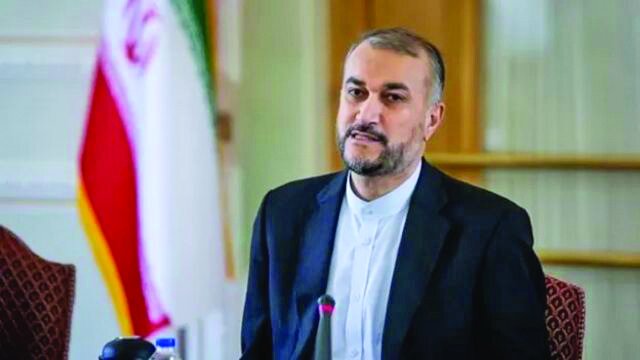Iran uses own means in Vienna talks to counter other side’s excessive demands: FM

TEHRAN- In negotiations in the Austrian capital intended to restore the 2015 Iran agreement, Foreign Minister Hossein Amir Abdollahian has said Iran employs its own tools in response to the other side's unreasonable demands.
Hossein Amir Abdollahian made the statements on Sunday after testifying before the Iranian Parliament's Committee on National Security and Foreign Policy to address concerns regarding the recent developments regarding Iran’s nuclear program.
Tehran “has offered its initiatives and ideas on a logical basis whenever it was treated in a logical way by the other side,” according to Iran’s top diplomat.
“Every time that the opposite side put forth excessive demands during the Vienna talks, we used the country’s own tools and power, so that they would understand that the interests and welfare of the Iranian nation were important to us and that we will continue our efforts to this end,” Amir Abdollahian remarked.
The foreign minister expressed optimism that the steps intended to persuade the negotiation parties to return to the nuclear deal, officially known as the Joint Comprehensive Plan of Action (JCPOA), would be implemented in such a manner that Iran's power and demands, as well as the expectations of the Iranian people, would be taken into account.
“While emphasizing the need to completely protect the rights of the country in international arena, our people expect us to do so while respecting all the red lines,” Amir Abdollahian noted.
Since April of last year, the Iranian negotiating team has been in continuous talks with the other JCPOA parties — the United Kingdom, France, Germany, China, and Russia – with the goal of re-inviting the United States to the agreement and ending the sanctions against Tehran.
Under previous President Donald Trump, the U.S. withdrew from the historic agreement and launched a "maximum pressure" campaign of sanctions on Iran in the hopes of reaching a "better deal" than the JCPOA.
Meanwhile, the Vienna talks have been on hold since March as the U.S. refuses to make up for past wrongs by removing Iran's Islamic Revolution Guards Corps (IRGC) from its list of foreign terrorist organizations.
The U.S., France, the United Kingdom, and Germany pushed a motion at the International Atomic Energy Agency's Board of Governors on Wednesday accusing Iran of not collaborating with the UN nuclear watchdog.
Iran has slammed the resolution, blaming it on the United States and its three European allies for the crisis that has erupted over its nuclear program, which was subjected to unprecedented levels of inspections before Washington pulled out of the JCPOA.
